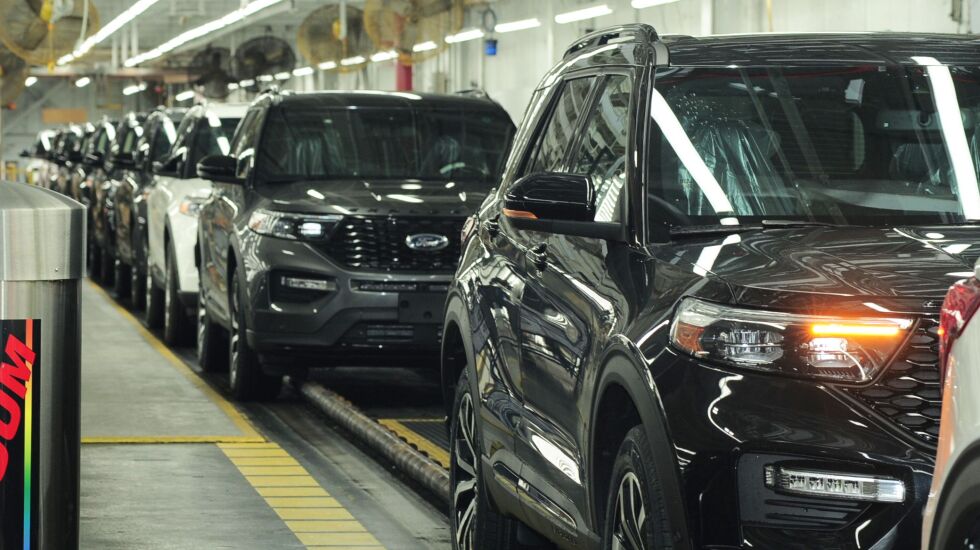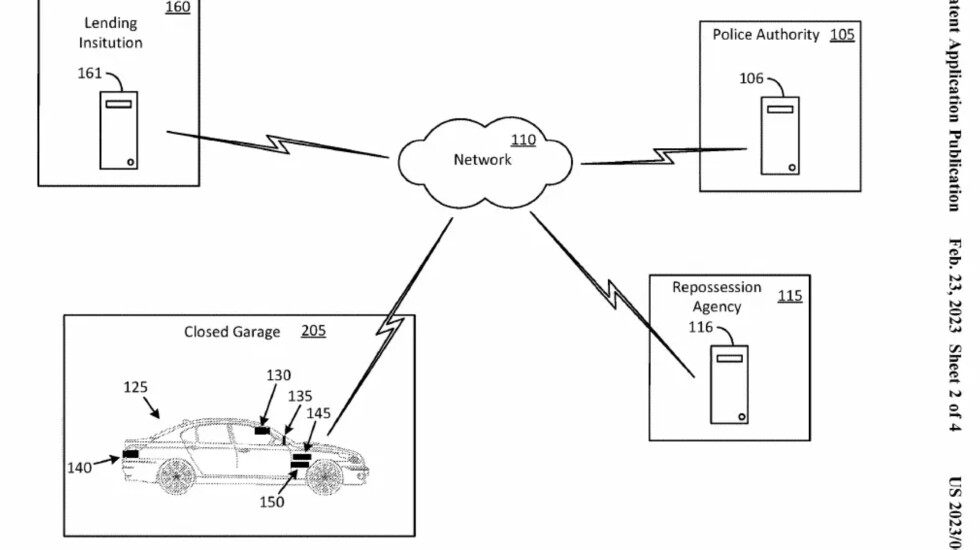
Imagine you’re running behind on car payments and your vehicle disables its AC to pressure you to pay up.
Days pass, then your car locks you out. Eventually, your car drives away on its own.
Ford Motor Co. applied for a patent last month that would use future car technology to aid in car repossession.
Although Ford said it has no plans for the technology — the company has said it files, on average, three patents a day on potential technology — the patent shows how cars might one day lose their standing as the embodiment of American independence.
Ford’s patent application describes several ways future car technology could aid in repos when payments run delinquent.
First, a lender would send a message through the car’s computer to a screen or the owner’s phone, confirming the owner is behind on payments.

If an owner fails to respond to that message, the car’s computer could begin disabling parts of the vehicle to “cause an additional level of discomfort” to induce payments, the patent says.
The car could disable the air conditioner, radio or key fob. Or it could lock out the owner, or disable the steering wheel, lights or brakes.
The car could also be restricted to a certain geographic area. In case of emergencies, an owner would be allowed to drive to a hospital or meet with an ambulance, the patent says.
In another scenario, if the car detects an owner trying to thwart repossession, such as by keeping the car in a locked garage, the car would initiate a call to police to file a complaint.
Ford’s patent application says autonomously repossessing vehicles could reduce “confrontations” that sometimes happen during repossessions.
Although the idea of a car autonomously repossessing itself is new, lenders for years have used “kill switches” on cars to lock out owners who fall behind on payments.
Last year, two car owners in Chicago filed a lawsuit after their car dealers and lender installed and activated kill switches on their cars, leaving their cars useless, parked on the streets for months during the moratorium on repossessions in the first months of the COVID-19 pandemic.
“It’s scary,” their lawyer, Dan Schneider, said of Ford’s patent application. “It’s the science fiction version of the kind of technology at issue in [our] lawsuit.”
Schneider said kill switches and self-repossessing cars bring a “fundamentally different burden that used to exist — and an additional humiliation” compared with old-school repossession.
Kill switches have also been used in cars to prevent drunken driving and have seen a recent surge in support as a way to combat vehicle theft. But automatically disabling a car for repossession can have unintended effects.
Schneider pointed to an example of a car locking itself on a street and getting ticketed.
“For someone struggling financially, it would be another burden,” Schneider said. “The other dimension is the human aspect of the day and moment, and the potential catastrophic effects it could have: getting to work, getting to school, medical care, doing it for a roommate, a neighbor,” he said.







